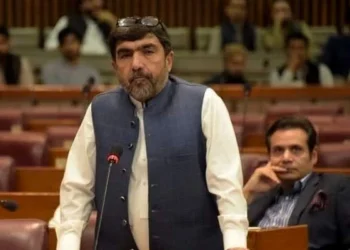KABUL; Interior Minister Mohsin Naqvi of Pakistan paid a key visit to Kabul where he held extensive discussions with Afghanistan’s Acting Interior Minister Sirajuddin Haqqani.
The visit, seen as a step towards stabilizing bilateral ties, focused primarily on counterterrorism cooperation, cross-border security, and regional peace.
Upon his arrival, Naqvi was warmly welcomed by Haqqani at the Afghan Ministry of Interior. The meeting brought together senior officials from both sides, including Pakistan’s Special Representative for Afghanistan Mohammad Sadiq and Interior Secretary Khurram Agha, alongside Afghan deputy ministers and diplomats.
The talks centered on pressing security issues, particularly the growing threat posed by the banned Tehrik-i-Taliban Pakistan (TTP). Both countries acknowledged the destabilizing influence of terrorist groups in the region and pledged to enhance collaboration to tackle them.
The two ministers also reviewed measures for effective border management along the porous Pakistan-Afghanistan frontier, including mechanisms to prevent cross-border infiltration, curb drug trafficking, and regulate legal movement across the border.
Naqvi stressed that joint action was essential to neutralize threats: “Terrorist organizations are causing instability and unrest. We must stop them together.”
Naqvi reaffirmed Pakistan’s longstanding goodwill toward Afghanistan, highlighting the country’s decades-long support for Afghan refugees. He emphasized that Pakistan remains open to welcoming Afghan nationals through legal channels.
The visit comes amid heightened concerns over border tensions and a resurgence of militant activity in Pakistan’s border regions following the Taliban’s return to power in Afghanistan in 2021.
Islamabad has repeatedly urged Kabul to act against groups like the TTP that use Afghan soil to launch attacks in Pakistan.
Both sides concluded the meeting with a shared resolve to pursue peaceful coexistence, strengthen mutual trust, and deepen bilateral cooperation for regional security and stability.

























